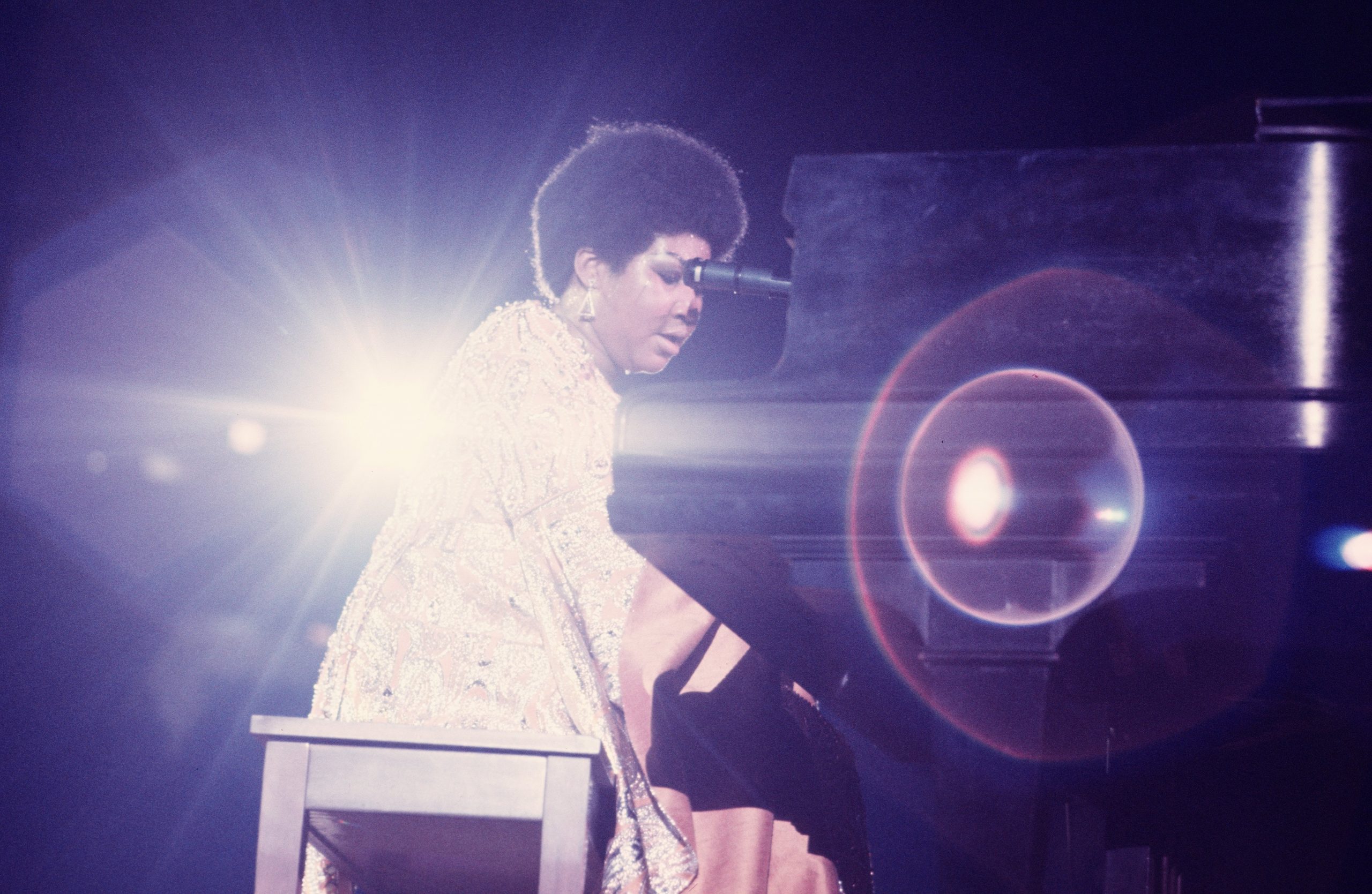I had tickets to see Aretha Franklin at Radio City Music Hall once, a few years ago. The show was cancelled, and the make-up date was inconvenient, so I opted for a refund instead. Part of me has regretted that decision every day since.
I’m not in any position to grapple with Aretha Franklin’s legacy. The woman was a titan, with a voice that turned every room into a cathedral, and her peak years (roughly 1966-1975) are the kind of catalog you can spend a lifetime digging into. Her cultural impact was incalculable. Like Chuck Berry or Bob Dylan or Elvis Presley, she changed the way people thought about what music should sound like. Even in her earliest years, she was capable of making a song so thoroughly her own that fellow singers would simply stop singing them.
But she was much more than an interpreter—she wrote songs too, and while she made her fair share of poor choices in the 1980s and 1990s, her talent almost never allowed her to coast through a track. So rather than talk about the immortal hits that every sentient music fan should already know by heart, I present to you a list of 10 lesser-known studio performances, from all eras of Aretha Franklin’s career, that are still every bit as glorious as her recognized triumphs.
“Drinking Again” (from Unforgettable: A Tribute To Dinah Washington, 1964)
Before signing with Atlantic and becoming the Queen Of Soul, Aretha Franklin was a young singer from Detroit who Columbia Records really didn’t know what to do with. They mostly ignored her gospel side in favor of smooth, jazzy pop, and while her voice came through regardless, the material was mostly not a good fit. Her fifth album for the label, though, was an inspired move. Dinah Washington died in December 1963, and Franklin entered the studio in February 1964 and recorded 10 songs associated with her, backed by a small jazz combo. This version of Johnny Mercer’s “Drinking Again” is a powerhouse, wailing performance that features Ernie Royal’s muted, Miles Davis-esque trumpet as a vocal counterpoint, as piano and gospel-ish organ surge behind her.
“96 Tears” (from Aretha Arrives, 1967)
Aretha Arrives was Franklin’s second Atlantic album, released in August 1967. (Her label debut, I Never Loved A Man The Way I Love You, came out in March of the same year.) It feels like a lesser album than its predecessor; she tries to soul-ify songs that don’t really stand up to the treatment, like “That’s Life” and Willie Nelson’s “Night Life” and the Rolling Stones’ “Satisfaction.” One song that should have been a weird little footnote, though, turns out to really be something. Franklin’s version of Question Mark And The Mysterians’ minimalist garage-rock sneer “96 Tears” lasts only 2:22, but she and her backing vocalists inject it with real power and fury. Her soaring voice is the complete opposite of Question Mark’s wavering fragility, turning the song from a petulant vow of revenge to a genuine threat. You dare laugh at the Queen?
“River’s Invitation” (from Soul ’69, 1969)
Soul ’69 is probably Aretha Franklin’s most overlooked album from her classic Atlantic era. Neither of the two singles -- “Tracks Of My Tears” or “Gentle On My Mind” -- did particularly well, and she didn’t write any of the material. But in the middle of Side One, there’s an amazingly dark song: Percy Mayfield’s “River’s Invitation,” which is literally about suicide. Over a slow, shuffling blues groove, Franklin sings that if she can’t find her man, she’s going to drown herself. “I spoke to the river/ And the river spoke back to me/ It said oh, you look so lonely/ So full of misery/ If you can’t find your baby/ Come and make your home with me.” As the song progresses, the horns grow louder, and after a short piano solo from jazz great Junior Mance, she reaches a bleak conclusion: “I don’t wanna leave him/But I know I’ll never see him alive/ And someday I’m gonna find him/ And he’s gonna take me for a ride/ And then we’ll live forever and ever and ever/ Among the tides.”
“Pullin’” (from Spirit In The Dark, 1970)
Spirit In The Dark was a difficult album for Aretha Franklin to make; it required multiple sessions between May 1969 and March 1970. Ultimately, it produced two singles, “Don’t Play That Song (You Lied)” and the title track, which Kanye West sampled on the song “School Spirit.” The album itself was not a hit, though, failing to reach the top 20. Like it’s black-and-blue cover art, it’s an emotionally raw album, full of songs about failed love and ending with the straightforward declaration “Why I Sing The Blues.” But “Pullin’” -- written by her sister Caroline -- is a cry of defiance against a faithless man. Left behind, Aretha is pulling out and moving on. She engages in fierce back-and-forth with her three backup singers as her powerful piano playing rides atop Roger Hawkins’ driving beat, and in the song’s final minute, the women go full-on gospel as the music gets faster and faster until she brings it all down with a single crashing piano chord and a sharp-tongued “Well?”
“Master Of Eyes (The Deepness Of Your Eyes)” (from Hey Now Hey (The Other Side Of The Sky), 1973)
Hey Now Hey was originally planned as a jazz album, and fragments of that idea remain; it contains a version of “Moody’s Mood,” after all, and Quincy Jones co-produced it with Franklin. But they ultimately went in a more soulful direction on most tracks, even if elements of jazz and other sounds made it into the music. “Master Of Eyes” wasn’t on the original album. It’s a weird song, Aretha’s voice is soft throughout most of it, rarely rising to full cry, and when she really cuts loose, she’s buried in reverb. The horns are pushed to the back for a sound that’s more Philly soul than Memphis. And why is Joe Farrell playing the flute? Still, it’s a great song deserving of wider attention.
“Come To Me” (from Aretha, 1980)
Aretha Franklin made 19 albums in 12 years for Atlantic Records. In 1980, she signed with Arista, and slowed down a little; by the end of the decade, she might even let two years pass between albums. Aretha, her label debut, was very 1980, and very Clive Davis, despite actually being produced by Chuck Jackson and Arif Mardin. She speeds up Otis Redding’s “I Can’t Turn You Loose” into a post-disco synth-driven sprint, and grapples unsuccessfully with a version of Michael McDonald’s “What A Fool Believes.” The ballad “Come To Me,” which opens the album, though, is Aretha in gauzy pop ballad territory, with an arrangement that will make your curtains blow even if there’s no wind. She liked the song so much, she re-recorded it nine years later, on Through The Storm.
“Gimme Your Love” (from Through The Storm, 1989)
A duet between Aretha Franklin and James Brown? Could be the greatest thing ever ... or the pop music equivalent of a hurricane. Well, “Gimme Your Love” sounds very, very different than it would have had Franklin and Brown joined forces twenty years earlier. It opens with samples of the Godfather Of Soul’s grunts and screams, but as the song progresses, they share a humorous, almost-dirty back-and-forth. Although she’s at full power, she leaves plenty of room for his hoarse cries, and they really do sound good together. The backing track is extremely 1989, all stabbing synths and ice-cold drum loops, but personalities this size will not be denied.
“The Woman” (from A Rose Is Still A Rose, 1998)
Franklin’s 1998 album A Rose Is Still A Rose was her first album in seven years at the time of its release. On it, she worked with producers like Sean “Puffy” Combs, Babyface, Dallas Austin, and Lauryn Hill (on the title track, which was a top 30 hit). “The Woman” wasn’t a single. At nearly eight minutes, it was the album’s epic closing track, a piano-and-synth-driven ballad on which Franklin returned to her upper register at full force and even demonstrates her skill at scat singing in the song’s second half. As it goes on into minutes six and seven, she almost seems to be singing to herself and playing some extremely strong piano as the band simmers the groove down to a jazzy shuffle.
“Falling Out Of Love” (from So Damn Happy, 2003)
So Damn Happy was Franklin’s final Arista album. Produced by LA Reid, it was a lush effort befitting her late career status as an icon. She was surrounded by horns, strings, and synthesizers, and her vocal performances were generally restrained, even if her voice was as beautiful as ever. “Falling Out Of Love” was written by Burt Bacharach and Jerry Lieber, and Franklin delivers the lyrics with care and few embellishments. What makes it interesting, though, is famous studio harmonica player Tommy Morgan, who introduces the track and reappears several times as a counterpoint. His tone is close enough to Stevie Wonder’s that you’ll run to Wikipedia to check.
“You’re Taking Up Another Man’s Place” (outtake, 1970; included on Rare & Unreleased Recordings From The Golden Reign Of The Queen Of Soul, 2007)
In 2007, Rhino dug through the Atlantic Records vaults and put together a two-CD set of previously unheard Aretha Franklin performances from the late 1960s and early 1970s. These included demos, alternate takes, and the like, and a lot of them came from the sessions for her less revered albums. But even lesser work from one of the greatest singers to ever step up to a microphone is gonna be glorious, and “You’re Taking Up Another Man’s Place” is that and more. Written by Isaac Hayes and David Porter, it was recorded in late 1969 or early 1970, when she was making This Girl’s In Love With You and Spirit In The Dark. It’s a slow-burning blues filled with the kind of real-life details that make for great soul music -- “You don’t even want me to go to the store alone/ You run over me trying to answer the telephone” -- and the horns are like a wailing Greek chorus as Aretha cries out from the piano. That this song was rejected only shows just how much amazing music they had to choose from at those sessions.
Listen to the playlist on Spotify.






